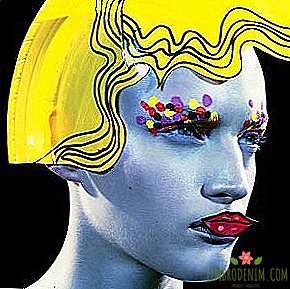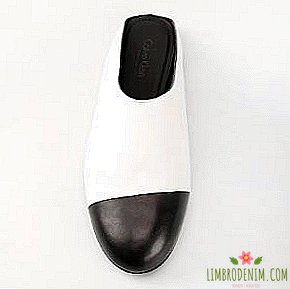Question to the expert: Is it true that the batteries "dry" the air
Text: Adel Miftakhova
RESPONSES TO THE MAJORITY OF US QUESTIONS we used to search online. In the new series of materials we ask such questions: burning, unexpected or widespread - to professionals in various fields.

When the batteries start to work, I want to smear the cream more and more, and I want to drink more. It is considered that heating makes the air drier: once wet mittens dry on the battery, then the effect on the air should be similar. At the same time, according to the laws of physics, cold air is drier than hot. How are things really? We learned from the experts.
Vasily Belokhin
Candidate of Technical Sciences
 Air can hold a certain amount of water vapor in itself - and this amount is called absolute humidity. It depends on the temperature: the warmer the air, the more water vapor it can hold, that is, the absolute humidity increases as the temperature rises. For example, at a temperature of 20 degrees in a single cubic meter of air there can be a maximum of 17 grams of water in the form of steam, and at a temperature of 0 degrees - about 5 grams.
Air can hold a certain amount of water vapor in itself - and this amount is called absolute humidity. It depends on the temperature: the warmer the air, the more water vapor it can hold, that is, the absolute humidity increases as the temperature rises. For example, at a temperature of 20 degrees in a single cubic meter of air there can be a maximum of 17 grams of water in the form of steam, and at a temperature of 0 degrees - about 5 grams.
Another measure of moisture content in the air is "relative humidity". This parameter is measured in percent and shows how much water contains in the air from the maximum possible quantity at a given temperature. If it is simpler, then this is the difference between how wet the air is now and how much humid it can be at a given temperature. It is the relative humidity that affects our feelings: the lower it is (that is, the greater the difference between the maximum possible and actual humidity), the more dry the air is felt.
So what happens in winter and why does indoor air in a cold period become drier? The fact is that in winter the "outside" air is very cold and can hold only a small amount of water. When he gets into the room (and he always gets, otherwise you would have nothing to breathe), he heats up and becomes able to hold more water in himself - but its actual content does not change. As a result, the difference between how much water it can hold and how much water it has now becomes larger, that is, the relative humidity drops, and the air is perceived as drier.
If the air contains the maximum amount of moisture for the current temperature, then the relative humidity is 100%. Imagine that on the street zero and the air with one hundred percent humidity enters a warm room. The actual water content in it does not change, but after heating to room temperature, the relative humidity drops - it will be only 27%. Because of this, the water from the skin begins to evaporate, and we have a feeling of dryness. It turns out that the temperature difference due to heating really leads to a decrease in the absolute humidity of the air, albeit indirectly.
Adel Miftakhova
author of the blog "Don't touch my face"
 As Vasily said, the air in many respects becomes drier due to infiltration, that is, the penetration of air from the street. But this does not mean that you need to seal windows tightly in order to avoid it. On the contrary, it is necessary to air the premises often, especially if someone in the house is ill, and to isolate all the smallest gaps simply will not work.
As Vasily said, the air in many respects becomes drier due to infiltration, that is, the penetration of air from the street. But this does not mean that you need to seal windows tightly in order to avoid it. On the contrary, it is necessary to air the premises often, especially if someone in the house is ill, and to isolate all the smallest gaps simply will not work.
What can you do to make your life more comfortable? First, a humidifier will help a lot. Thanks to him, the skin and mucous membranes will evaporate less water, and this will help to cope with a feeling of dehydration or a feeling of sand in the eyes in the morning. True, it is important to make sure that there are no cold unventilated areas in the apartment - like a section of a wall behind a cupboard. With the additional moistening of air in such places, the water will begin to condense, and may even start to grow mold.
Secondly, intensive moisturizing helps, and the care products need to be layered. Moisturizing components are divided into water-retaining and locking. The first are those that saturate the skin with water. These are glycerin, hyaluronic acid, urea, butylene glycol and so on. Means with them are usually very liquid - all kinds of tonics, lotions, essences, serums. On the packages you need to look for inscriptions like "hydrating", "moisturizing", "aqua" and so on - in general, everything related to water.
The locking ingredients are oils, oil-like substances and silicones. They create a kind of barrier, due to which water from the skin evaporates more slowly. Funds with them can be in the format of creams, balms or oils. In winter, it is especially useful to choose those that say "barrier repair" and "replenishing". They not only block water in the skin, but also help maintain the skin’s own protective functions.
The procedure is as follows: first, you should apply the product with water-retaining components on wet skin. The skin must be moist, so that the water retention components come from where to get water. If there is already humid air in the bathroom, then this is not required - although it does not hurt. If you apply these products to dry skin in dry air, they will moisturize not the skin, but air. Then, when the first tool is almost completely absorbed, you need to apply your usual cream, in which a lot of locking components.
Hardly anyone will put two products on the body, so the recommendation here is this: you need to use as soft a shower gel as possible, preferably from lines for dry and atopic skin. And right after that, apply any cream that you use to the wet skin. It is only necessary that it contains both types of moisturizing ingredients.
Photo:RTimages - stock.adobe.com, Rozetka




